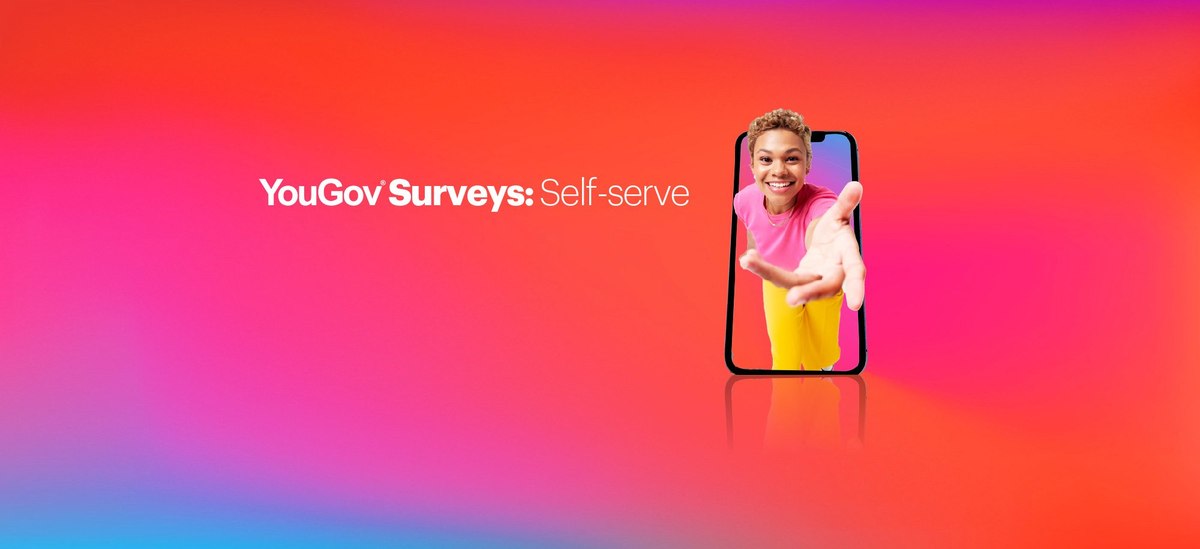
The good, the bad, and the ugly of dating apps in Britain
When it comes to executing a marketing strategy, understanding why your competitors’ customers are choosing them over you can be just as valuable as knowing your own brand’s strengths.Targeted audience analysis can help marketers understand the ins and outs of a highly specific group - from online dating users' statistics to mobile gamers; from Heineken drinkers to Honda drivers - allowing you to position your brand or product in the right place to take advantage.Using its targeting capabilities, YouGov Self-serve - our fully self-serviced research platform - allows marketers to quickly, easily and cheaply survey an audience and ask them whatever they want.In just a few clicks, you can target an audience of your choice (including customers of one or more of 1,500 brands in UK or 2,200 brands in US), and then create your custom poll using our easy survey builder. Within 24 hours, you could have the answers that make the difference between failure and success for your upcoming product launch, brand campaign or crisis management strategy.
In this piece, we used our survey tools to poll users of dating apps in Great Britain.
Dating apps are sometimes condemned as “soul destroying” – to the point where, per some recent headlines, people are seeking to make romantic connections via their professional networks instead.
But are the apps actually a bleak hellscape, or a worthy way to find love in a digital world? Using YouGov Self-serve, our fully self-service survey-building platform, we asked 380 current dating app users across a range of platforms for their thoughts. Here are a few online dating statistics.
By 46% to 29%, dating app users say their experiences have been bad
First, the bad news: 46% of current dating app users say their experiences have been bad.
A further 25% say their experiences have been neither good nor bad, while 29% say their experiences have been good. Of course, it might reasonably be argued that if you’re looking for love and do not inherently enjoy the experience of dating, simply being on the apps implies a poor experience: Hinge, for example, says it is “designed to be deleted” – because it wants its users to form long-term bonds – in much of its marketing.
Nevertheless, we asked users whether they thought the profiles being shown to them were appealing or not. Under two in five (37%) said the profiles were appealing, while three in five (59%) said they were not as per YouGov online dating statistics. Perhaps this is part of what’s driving some users to Strava and, erm, LinkedIn.
Most Britons on dating apps are uncomfortable approaching people in real life
Just one in five Britons (20%) thinks a dating app is a better option for meeting a romantic prospect than meeting them in real life, 37% say it is neither better nor worse, and two in five (39%) think dating apps are a worse option than meeting someone IRL. But that doesn’t mean that Britons looking for love are happy to walk up to someone in a coffee shop or a bar.
Some 72% of the dating app-using public say they are uncomfortable approaching someone they have a romantic interest in in a social setting, while just 27% say they are comfortable.
So dating apps might be serving a useful purpose for Britons who lack the confidence to make the initial move, even if they do not always love the digital experience.
You’re more likely to encounter a fake profile on a dating app if you’re a man
Overall, three in five dating app users say they frequently encounter accounts they suspect to be fake (61%) as per YouGov online dating statistics.
It’s an experience that’s far more likely if you’re male: 71% of men on the apps say they frequently encounter fake profiles compared to 47% of women. Deepest sympathy to the users who thought they’d matched with Alicia Vikander.
Half of Britons on dating apps think the UX has been good; just one in five say it has been bad
Finally, some 49% of Britons on dating apps say their user experience – whether it functions well, is easy to use etc. – on the apps has been broadly good.
Just one in five say the experience has been poor (20%). So it may not be much consolation to lonelier users, but if Britons are having a horrible time on the apps, it’s probably not because of glitches, crashes, or unintuitive UX. Equally, much as some users might prefer to meet people in real life versus an app, most are uncomfortable taking the steps to do so, so as a means to an end, apps continue to appeal.
We are left, then, with a banal but perhaps inevitable conclusion: if dating apps are horrible for some people, it may be because the experience of dating is simply horrible for some people, whether it’s on an app or otherwise. All those Meg Ryan movies did come out long before Tinder was a thing.
Make smarter business decisions with better intelligence. Understand exactly what your audience is thinking by leveraging our panel of 20 million+ members. Speak with us today.
Methodology
YouGov polled 380 British users of dating apps online on 9 December 2023. The survey was carried out through YouGov Surveys: Self-serve. Data is weighted by age, gender, race, political affiliation, education level and region. Learn more about YouGov Surveys: Self-serve.